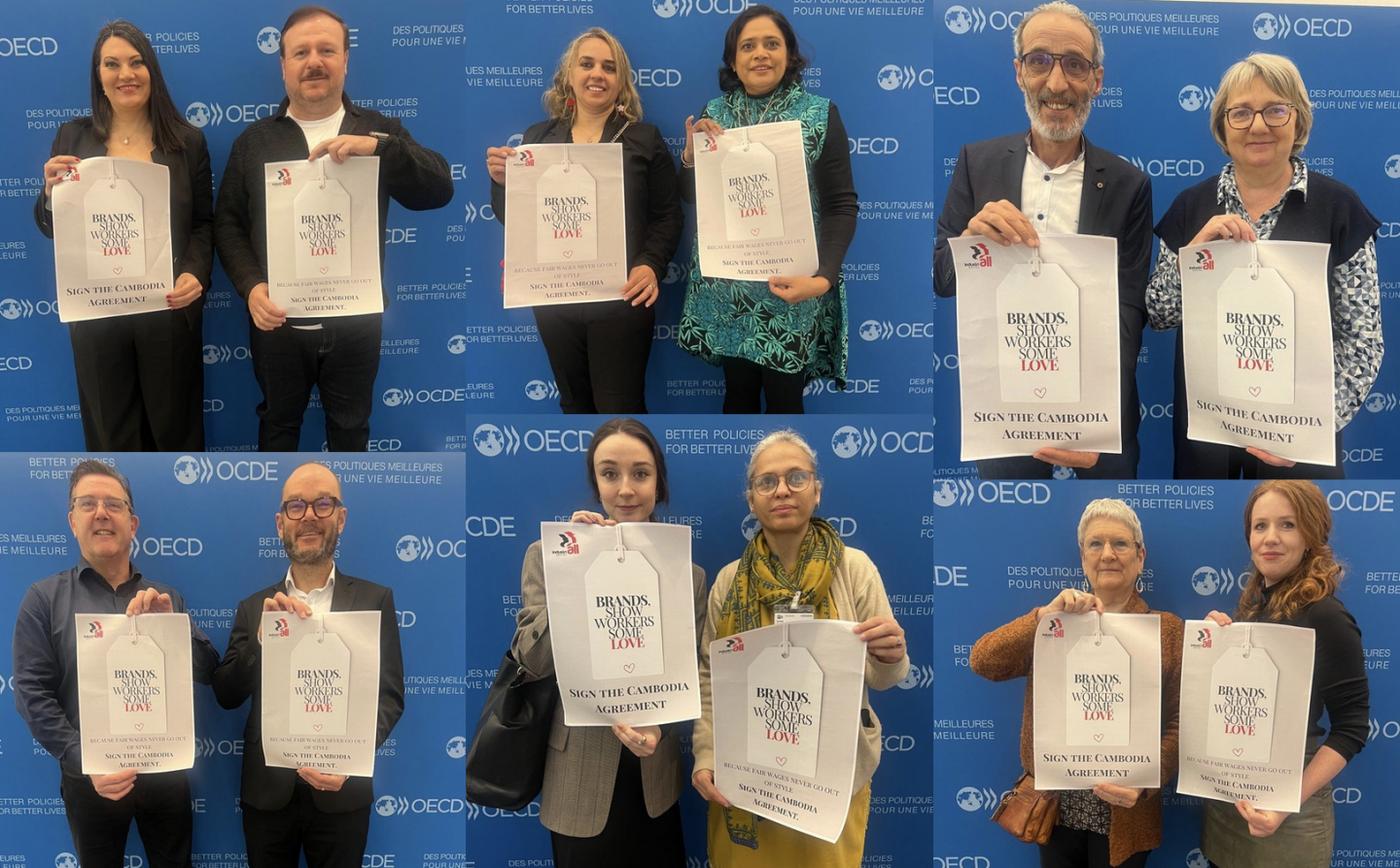20 February, 2025IndustriALL’s delegation at the 2025 OECD Forum on Due Diligence in the Garment and Footwear Sector in Paris earlier this month underscored the growing consensus that voluntary commitments are failing workers; legally binding agreements are the way forward. Trade unions at the forum, brand representatives and other stakeholders discussed the pressing need for accountability, mandatory due diligence and the role of collective action in ensuring responsible business practices.
In one of the panels, Etienne Vlok from IndustriALL South African affiliate SACTWU, highlighted the potential for trade agreements to foster responsible business practices within domestic markets, particularly in regions where ethical business standards are not as deeply entrenched as in Europe. Compliance with international standards must be mandatory, not optional.
Discussions centred around the effectiveness of legally binding agreements in ensuring compliance and fostering better labour conditions. Speakers pointed to the success of agreements like the Bangladesh Accord, which has demonstrated that binding frameworks can lead to tangible improvements in working conditions and worker safety. However, many agreements outside such frameworks remain weak, highlighting the ongoing challenge of ensuring enforceability.
The forum also highlighted growing investor interest in binding agreements as a means of mitigating financial risk. For investors, companies that fail to comply with labour rights regulations pose a significant reputational and financial risk. During the forum, IndustriALL and the Labour Rights Investor Network (LRIN) launched Investor Guidance and Expectations: Supply Chain Due Diligence and Binding Agreements. The document lays out investor expectations for companies to respect workers' rights in global supply chains. Specifically, it addresses how binding agreements between trade unions or worker representatives and companies can uphold fundamental labour rights and mitigate related risks for companies and their investors.
Union engagement was another focal point of the discussions. With only 39 per cent union density in the sector and collective bargaining agreements covering approximately 30 per cent of the workforce — higher than the global average but still inadequate — the need to expand union representation remains critical.
IndustriALL affiliates from Bangladesh, Cambodia and Türkiye described the challenges faced by unions, including government and employer resistance, as well as outright criminalization of worker advocacy in some countries. Despite these hurdles, the signing of Cambodia’s first brand-backed collective bargaining agreement was highlighted as a key victory, demonstrating that brand engagement is essential for meaningful progress.
Athit Kong, president of Cambodian union CCADWU, stressed the need for direct brand involvement in negotiations, rather than relying solely on supplier-level agreements.
"We need to engage with brands, not only with suppliers and workers. Our union, CCADWU, has signed the first CBA under the Cambodia agreement. We call on other brands sourcing from Cambodia to follow as soon as possible.”
A critical yet complex issue discussed at the forum was responsible disengagement. While brands must take a stand against human rights violations, sudden exits from factories or regions can leave workers in precarious situations.
"We want workers to work. We want to engage with businesses and brands on these issues. Disengagement must be carefully managed through responsible exit strategies that minimize harm to workers. This approach requires long-term planning, stakeholder engagement, and brand accountability to ensure that vulnerable workers are not left without livelihoods,”
said Christina Hajagos-Clausen, IndustriALL textile and garment director.


